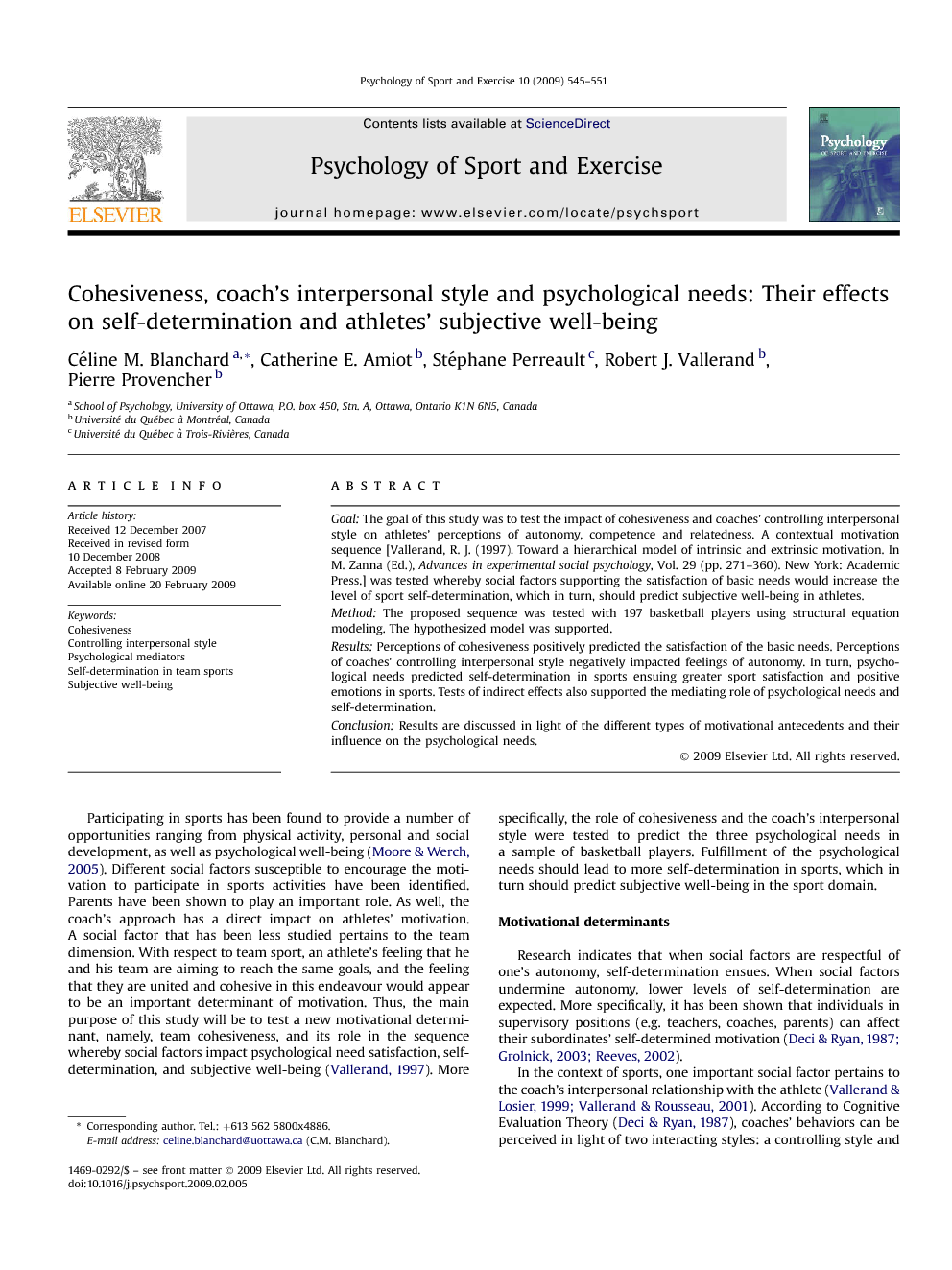ترجمه فارسی عنوان مقاله
انسجام، سبک بین فردی مربی و نیازهای روانشناختی: اثر آن روی حق تعیین سرنوشت و رفاه ذهنی ورزشکاران
عنوان انگلیسی
Cohesiveness, coach's interpersonal style and psychological needs: Their effects on self-determination and athletes' subjective well-being
| کد مقاله | سال انتشار | تعداد صفحات مقاله انگلیسی |
|---|---|---|
| 34560 | 2009 | 7 صفحه PDF |
منبع

Publisher : Elsevier - Science Direct (الزویر - ساینس دایرکت)
Journal : Psychology of Sport and Exercise, Volume 10, Issue 5, September 2009, Pages 545–551
ترجمه کلمات کلیدی
-
انسجام - کنترل سبک بین فردی واسطه روانی - حق تعیین سرنوشت در تیم های ورزشی - ذهنی رفاه -
کلمات کلیدی انگلیسی
Cohesiveness; Controlling interpersonal style; Psychological mediators; Self-determination in team sports; Subjective well-being.

